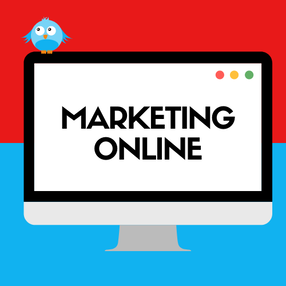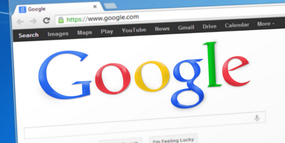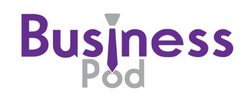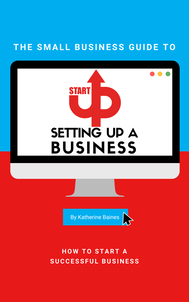Marketing Online
We will shortly be launching the Digital Marketing Hub where you will be able to find a LOT more information
on all aspects of Digital Marketing - www.digital-marketing-hub.co.uk
However for now here are the top few items to consider
on all aspects of Digital Marketing - www.digital-marketing-hub.co.uk
However for now here are the top few items to consider

Online marketing is also now known as Digital Marketing and is a huge area to cover hence our plan to create a Digital Marketing Hub, however to get you started here we cover the basics that you need to consider, that being creating a website, considering social media, and paid for advertising using Google Adwords.
Website
A website is a must for any business today, as it is the modern-day brochure. Your website is where potential customers will go to check you out. Nowadays it is easier than ever to sell products or services via your website should you wish too, and it can help you build your relationship with your customer.
You have two options:
For both options it is important to have a plan, as this will help you or your web developer put your site together efficiently and effectively. Remember, even if you get a web developer to do it for you, you will still need to write the content (also known as copy) to go into your website.
Website
A website is a must for any business today, as it is the modern-day brochure. Your website is where potential customers will go to check you out. Nowadays it is easier than ever to sell products or services via your website should you wish too, and it can help you build your relationship with your customer.
You have two options:
- Do it yourself
- Get a web developer to do it for you
For both options it is important to have a plan, as this will help you or your web developer put your site together efficiently and effectively. Remember, even if you get a web developer to do it for you, you will still need to write the content (also known as copy) to go into your website.
To create your website if you are going to do it yourself you will need the following:
- Domain name – this is your www. name, i.e. 'www.start-up-hub.co.uk' is a domain name. You can buy this from the likes of 123 Reg, 1&1, or Go-Daddy
- Software to create your website – e.g. using Weebly (this is my favourite and is so easy to use), Wix and WordPress. You can also buy a domain name via these software providers, which might be something you want to consider as it keeps it all in one place. If you use Weebly but buy your domain name from 123-Reg like I do, you will need to put a couple of numbers into your control panel to make your domain held at 123-reg talk to the Weebly website, but Weebly does give you full instructions on how to do this.
- Hosting – this tends to be provided free when you use the Weebly, Wix and WordPress software to create your website. I.e. your website will be held on the Weebly server, so you aren’t holding your data on your computer/server.

Social Media
Firstly, decide on which social media platforms you are going to start with, as there are now many social media sites and there are many now specialising in specific areas/niches. By knowing your Niche & Ideal Client you can think about which platforms they are likely to be on, to know on which platform to focus your efforts.
The key is to work out which social media platforms your ideal client uses. You can research this online.
The main sites to consider first are:
Remember social media is not about selling; it is about creating a community and building relationships. As with all marketing you need a plan of action to keep you focused and ensure you are using social media effectively in your business.
Your social media plan needs to highlight what you aim to achieve and how you are going to achieve it. For example, one main aim may be to build a following on Twitter to whom you can provide value to with links to interesting articles. You can achieve this by following people that provide useful content that you can re-tweet and look at who follow them and try to connect with them as they are potentially your target customer.
Most social media platforms are free to join, therefore choose the two you wish to try first and set up your free account.
You need to be consistent with your message and post regularly. Social media is not something that you can do once and then forget about, you have to be pro-active. There are tools out there now that help you automate your social media e.g. social oomph, Tweet Deck, and Hootsuite to name a few, that will allow you to post items at a future date, however you must ensure that the posts are relevant to your followers and post in a timely manner.
Firstly, decide on which social media platforms you are going to start with, as there are now many social media sites and there are many now specialising in specific areas/niches. By knowing your Niche & Ideal Client you can think about which platforms they are likely to be on, to know on which platform to focus your efforts.
The key is to work out which social media platforms your ideal client uses. You can research this online.
The main sites to consider first are:
- You Tube (video marketing is now becoming very popular)
Remember social media is not about selling; it is about creating a community and building relationships. As with all marketing you need a plan of action to keep you focused and ensure you are using social media effectively in your business.
Your social media plan needs to highlight what you aim to achieve and how you are going to achieve it. For example, one main aim may be to build a following on Twitter to whom you can provide value to with links to interesting articles. You can achieve this by following people that provide useful content that you can re-tweet and look at who follow them and try to connect with them as they are potentially your target customer.
Most social media platforms are free to join, therefore choose the two you wish to try first and set up your free account.
You need to be consistent with your message and post regularly. Social media is not something that you can do once and then forget about, you have to be pro-active. There are tools out there now that help you automate your social media e.g. social oomph, Tweet Deck, and Hootsuite to name a few, that will allow you to post items at a future date, however you must ensure that the posts are relevant to your followers and post in a timely manner.

Google AdWords for advertising
Google AdWords advertising is where you pay Google to place your advert at the top of a search results. You will notice that there are sometimes a few search results at the top of a page, and smaller adverts down the right-hand side, these are the AdWords ads that someone has paid for them to be there.
You are in control of what you spend per day and you only pay when someone clicks on your advert. You can have various adverts running at once so you can then see what is working best for you. You can also have different campaigns running too so that you can track everything you do. It works on the basis of bids. I.e. the higher the amount you are willing to pay the more likely you are to be at the top. You can also set daily limits too. For example on one of my businesses I set my limit to £5 per day and at £1.50 per click as there are larger companies on there too in the same industry with the same key words that have a similar bid rate. If you are in a unique market without competition, then you could end up only having to put a 50p per click amount in. When setting this up, Google will advise you on the rate you will need to use for it to be effective.
Your adverts must have your key words in them. Key words being the words that someone will type into the Google search box when they are looking for you. Google will also give you lots of analysis on key words too.
Setting up a Google account is free, so sign up and have a look, you’ve got nothing to lose. More information can be found at www.google.co.uk/adwords
Google AdWords advertising is where you pay Google to place your advert at the top of a search results. You will notice that there are sometimes a few search results at the top of a page, and smaller adverts down the right-hand side, these are the AdWords ads that someone has paid for them to be there.
You are in control of what you spend per day and you only pay when someone clicks on your advert. You can have various adverts running at once so you can then see what is working best for you. You can also have different campaigns running too so that you can track everything you do. It works on the basis of bids. I.e. the higher the amount you are willing to pay the more likely you are to be at the top. You can also set daily limits too. For example on one of my businesses I set my limit to £5 per day and at £1.50 per click as there are larger companies on there too in the same industry with the same key words that have a similar bid rate. If you are in a unique market without competition, then you could end up only having to put a 50p per click amount in. When setting this up, Google will advise you on the rate you will need to use for it to be effective.
Your adverts must have your key words in them. Key words being the words that someone will type into the Google search box when they are looking for you. Google will also give you lots of analysis on key words too.
Setting up a Google account is free, so sign up and have a look, you’ve got nothing to lose. More information can be found at www.google.co.uk/adwords

